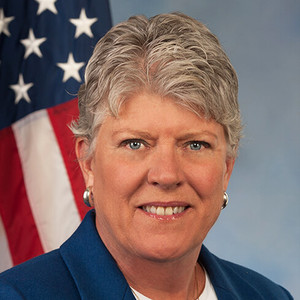Bill aims to incentivize the production of SAF

February 8, 2021
BY Erin Krueger
Rep. Julia Brownley, D-Calif., On Feb. 3 reintroduced the Sustainable Aviation Fuel Act, which aims to incentivize the production of sustainable aviation fuel (SAF), including the establishment of an aviation-only Low Carbon Fuel Standard. Brownley previously introduced the legislation in November 2020.
The legislation would establish a national goal for the U.S. aviation sector to achieve a net 35 percent reduction in GHG emissions by 2035 and net zero emissions by 2050.
As part of that goal, it would require the U.S. EPA to establish an aviation only LCFS to regulate fuel producers and importers. Obligated parties would have to comply with a carbon intensity benchmark that declines each year. Producers that make fuels below that benchmark would generate credits they can sell to producers that make fuels above that benchmark. The benchmarks would be set at a 20 percent reduction in carbon intensity by 2030, ramping up to a 50 percent reduction by 2050.
Advertisement
Advertisement
One section of the bill would require the U.S. Department of Defense to increase its use of SAF, with a requirement that at least 10 percent of the aviation fuel purchased is U.S.-produced SAF beginning in fiscal year 2024, so long as the fuel is cost competitive with fossil jet fuel.
The bill would also require the FAA Center of Excellence for Alternative Jet Fuels and the Environment to conduct additional research on ways to increase SAF fuel utilization in the aviation sector, the impact of aviation emissions on the climate crisis, and ways to eliminate aviation-related GHG emissions. That initiative would be supported with $175 million over five years.
To support SAF production and distribution, the bill would authorize a $1 billion grant program to support projects in the U.S. to produce, transport, blend or store SAF. In addition, it would establish a blenders tax credit of between $1.50 per gallon and $1.75 per gallon, depending on the fuel’s GHG reduction. To prevent double dipping, SAF would no longer be eligible for the $1 per gallon biodiesel tax credit.
Advertisement
Advertisement
The bill would also expand the existing energy investment tax credit (ITC) to include SAF production facilities and related infrastructure. The credit would be a 30 percent credit through 2026, and would scale down to 24 percent in 2027, 18 percent 2028, and 12 percent from 2029 through 2035. The credit would be clawed back if more than 20 percent of the fuel produced by the facility is a product other than SAF for up to five years after production begins.
In addition, the bill aims to expand the feedstocks for SAF production by requiring the U.S. Department of Energy and the USDA to research the use of cover crops in the production of SAF.
Additional information is available on Brownley’s website.
Related Stories
Bangkok Airways Public Company Limited has officially announced the adoption of sustainable aviation fuel (SAF) on its commercial flights, reinforcing Thailand’s green aviation industry. The initiative took effect starting July 1, 2025.
Avalon Energy Group LLC and Sulzer Chemtech have signed a strategic alliance and partnership agreement to scale up the production of SAF. Under the agreement, Avalon has selected BioFlux technology for its portfolio of SAF projects.
The USDA has announced it will delay opening the first quarterly grant application window for FY 2026 REAP funding. The agency cited both an application backlog and the need to disincentivize solar projects as reasons for the delay.
Neste and DHL Express have strengthened their collaboration with the supply of 7,400 tons (9.5 million liters) of neat, i.e. unblended, Neste MY Sustainable Aviation Fuel to DHL Express at Singapore Changi Airport starting July 2025.
CoBank’s latest quarterly research report, released July 10, highlights current uncertainty around the implementation of three biofuel policies, RFS RVOs, small refinery exemptions (SREs) and the 45Z clean fuels production tax credit.
Upcoming Events










